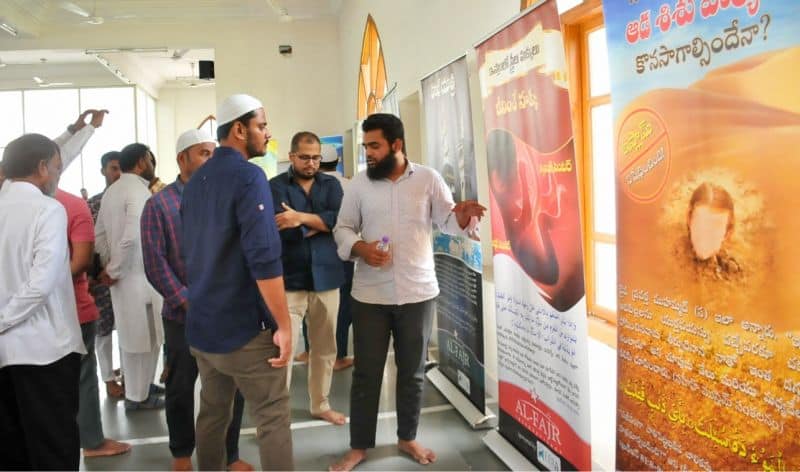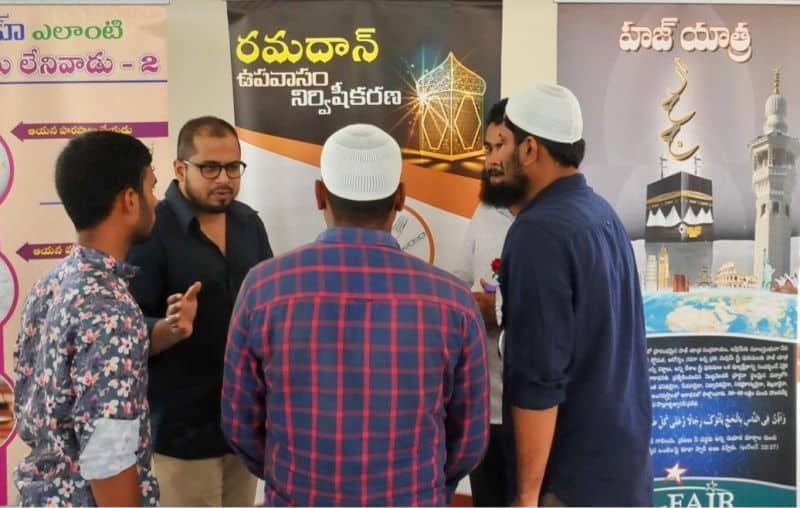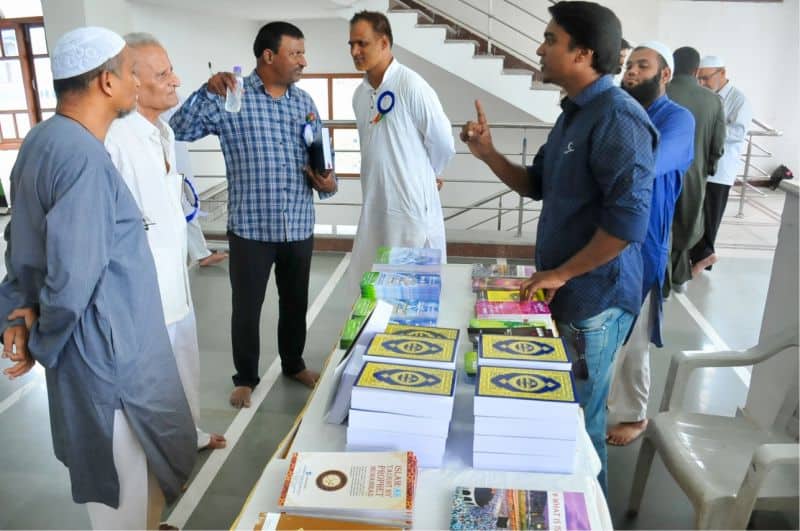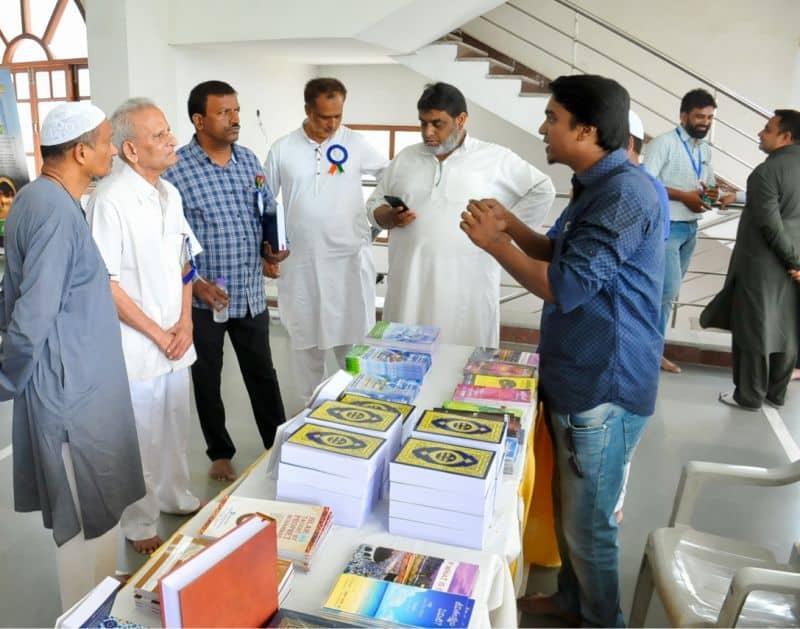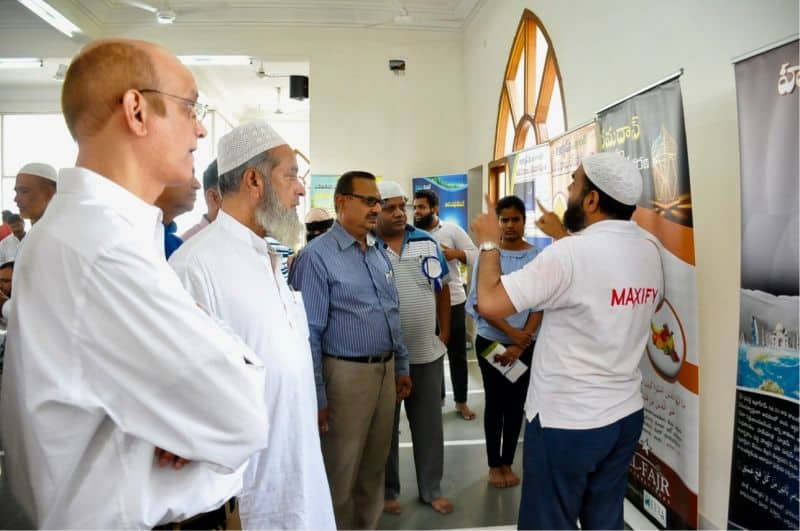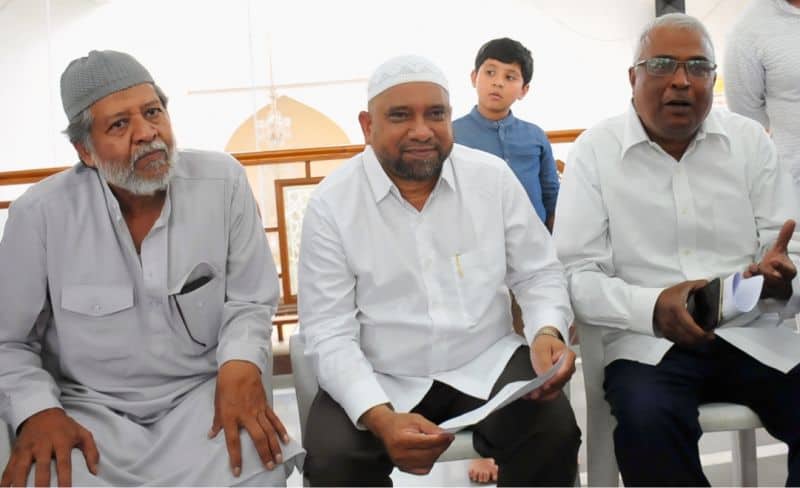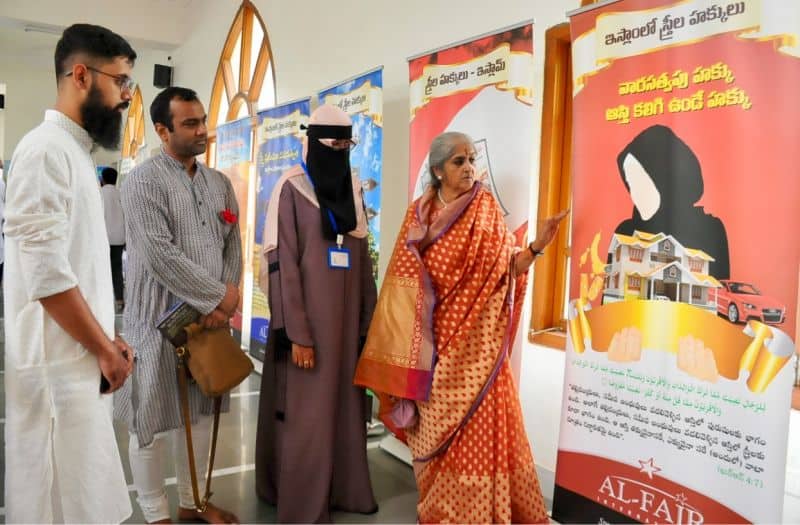Hyderabad, June 17: A day after Muslims celebrated Eid that concludes Ramadan, Islamic month of fasting, a city-based Masjid hosted an Open Mosque for all program for non-Muslim community. In a first-of-its-kind effort, an ‘Open Mosque’ program was conducted at Masjid-e-Quba at Nanal Nagar, Mehdipatnam. Through this program, the Masjid was made open for the interfaith community, in an effort to elucidate the teachings of Islam, and its message for peace and communal harmony. The Masjid was made open for believers of all religions to participate in a dialogue, and rightly interpret certain Muslim routines including Namaz, Azaan, Wadhu (Ablution) that are part of Muslim way of life even as they coexist in a multi-religious and multi-cultural society.
A large number of people from different communities including Christians, Sikhs, Hindus attended the session, where participants were explained the meaning of Azaan, how Muslims offer Namaz, and why there are Minarets in the architecture of most Masjids.
Besides the first Masjid in the country to host such a program, the Masjid-e-Quba is distinct in its architecture and build. The 850 square yards Masjid, built by Syed Akhtar and designed by Architects Naseer Aziz and Zaheer Ahmed is an example of Egyptian-Arabian architecture. It has a dome top and minaret that rises to the Masjid’s three floors. Masjie-e-Quba can accommodate 1200 people at a time across these floors.
Printed charts explaining the basic tenets of Islam were put up on the first floor of the Masjid for visitors to read and interpret, while Dates and Sheer Khurma were served to these non-Muslims at the ground floor.
The idea of the Open Mosque was proposed by a Mr. Mohammed Mustafa who recently embraced Islam, who believes such programs can “help others look at Islam with clear glass, and untainted perception. ”
In the times of the Prophet Muhammed (PBUH), the Masjid’s were the only centre place for marriages (Nikah), meetings with foreign delegates, and even as centre for education in the form of Madrassas. During these times, the Masjids served as not just a place for prayers but a center for education. The scholars said “the system in those days where Masjids were centres of prayer, education and dialogue was invaluable. It needs to be revived.”
Noted philanthropist Mr. Syed Aneesuddin, Dr. Anuradha of Intact NGO, Muslim clerics and many Islamic scholars were also present on this occasion.

